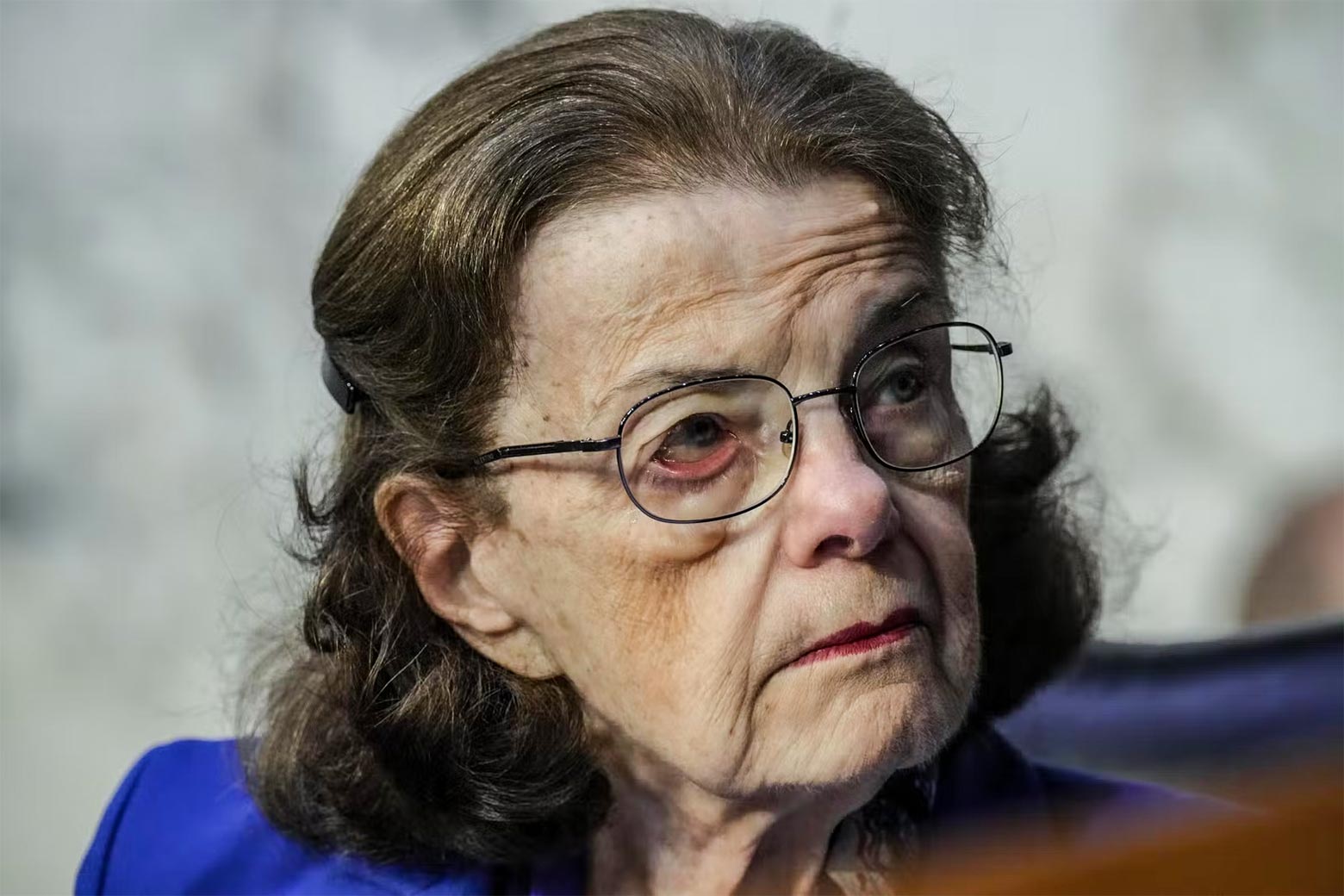“Oh, you’re an eager one,” Sen. Dianne Feinstein said as the elevator door opened and she saw me on Tuesday afternoon.
The senior California senator had just voted, after returning to the Senate last week after an extended absence following a case of shingles. The 89-year-old Feinstein, whose physical and mental capacity has deteriorated in recent years, and whose ability to continue serving in the Senate has come under question, is working an admittedly “lighter schedule” under doctors’ advice. She has, though, voted both days this week. On Tuesday afternoon, a male staffer escorted her on his arm to vote against a Republican bill to block a District of Columbia policing law. She was on and off the floor in an instant—but on her own two feet.
It was about a minute later that I encountered Feinstein coming off an elevator, sitting in a wheelchair and flanked by staff. It’s been hard to find the senator since her return; she’s kept her movements mostly to the least-populated passageways and skipped luncheons and non-urgent committee hearings.
I asked her how she was feeling.
“Oh, I’m feeling fine. I have a problem with the leg.” A fellow reporter staking out the elevator asked what was wrong with the leg.
“Well, nothing that’s anyone concern but mine,” she said.
When the fellow reporter asked her what the response from her colleagues had been like since her return, though, the conversation took an odd turn.
“No, I haven’t been gone,” she said.
OK.
“You should follow the—I haven’t been gone. I’ve been working.”
When asked whether she meant that she’d been working from home, she turned feisty.
“No, I’ve been here. I’ve been voting,” she said. “Please. You either know or don’t know.”
After deflecting one final question about those, like Rep. Ro Khanna, who’ve called on her to resign, she was wheeled away.
It is true that Feinstein has been in Washington and voting for the past week, while coming to committee hearings on a need-to-be-there basis. Last Thursday, for example, she attended a Judiciary Committee hearing to approve several partisan nominees who had been held back by her absence. That—as well as close nomination votes on the full Senate floor—is all that Democrats need from her at the moment.
But it is not true that she had been “here,” in a physical sense, for the two-and-a-half-month stretch between February and last week. It was odd for that to skip her mind. The senator’s absence, and her insistence on not resigning, has been one of the biggest political stories of the year, given her critical role not just on the Judiciary Committee but as a pivotal Democratic vote in the full body. (Feinstein’s office declined to comment.)
You either know or don’t know.
On Monday, I had asked another member of the committee, Connecticut Sen. Richard Blumenthal, whether there really was any optimism that Feinstein could return to being a fully functioning, contributing member of the committee like her old self.
“There’s one job that no one else can do for us, which is to vote,” Blumenthal said. “And she’s been doing that job in the last few days, and so far as I can tell, she’s been doing well.”
Sen. Sheldon Whitehouse, whom I asked separately, had a terser response: “I’m gonna leave that to the medics.”

